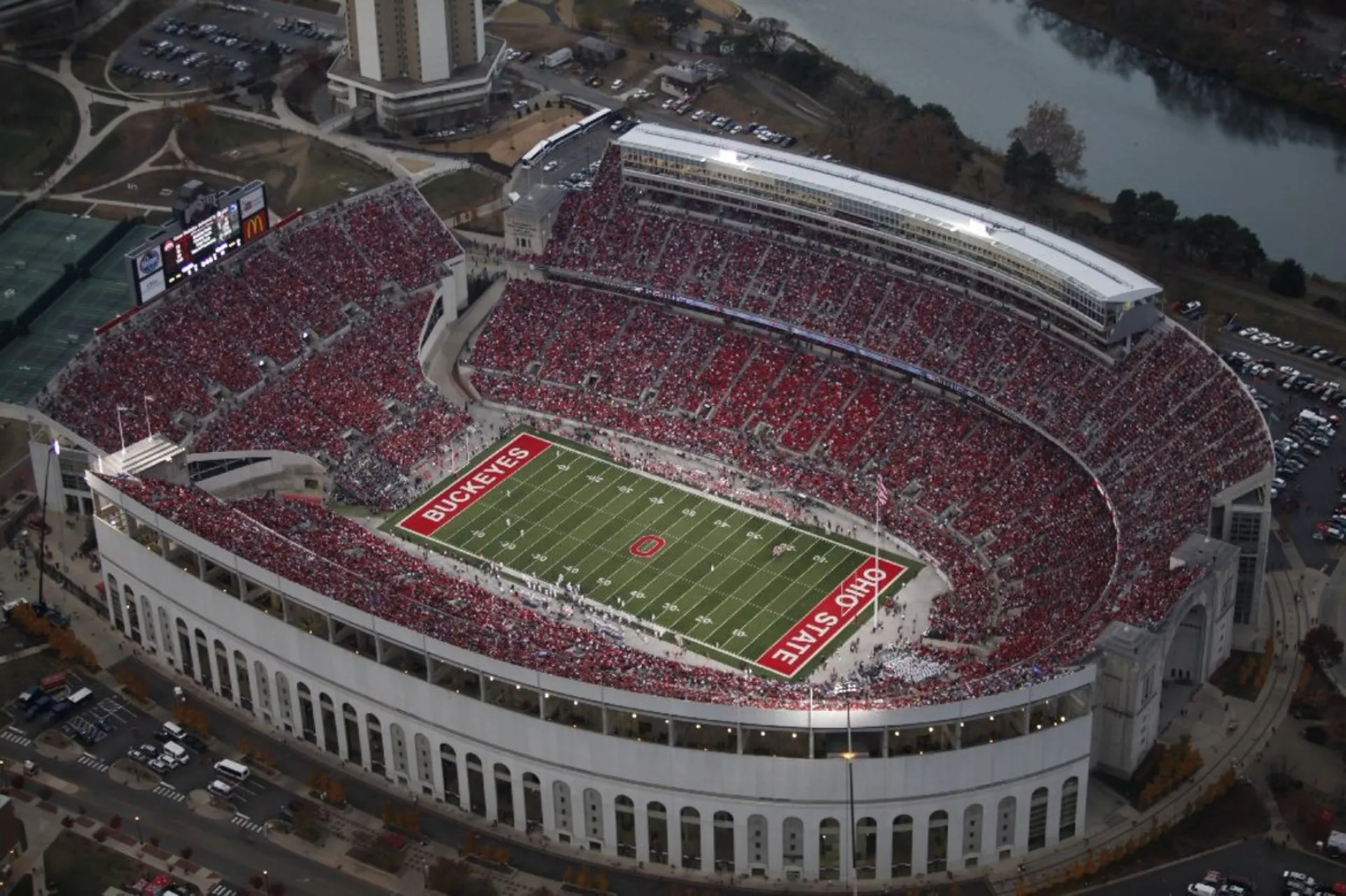COLUMBUS, Ohio — In a state where football is not just a sport but a religion, Republican representative Teks Fisher has challenged one of Ohio's most controversial traditions: midday games of the Ohio State Buckeyes. His new bill, introduced last week, requires that games involving the Buckeyes against top-10 Associated Press teams begin no earlier than 3:30 PM. The proposal, which includes penalties of up to $10 million for violators, has sparked debates about football culture, television ratings, and political populism at the heart of America.
Football passion versus television schedules
Fisher, a passionate supporter of the Buckeyes from the Cincinnati suburb, does not hide his frustration. "Midday games against teams like Texas are an offense to fans," he posted on X, the platform that has become the arena for his campaign. The bill seems to have arisen from outrage over the upcoming rematch against the Texas Longhorns on August 30, which, according to rumors, Fox plans to broadcast as part of its popular Big Noon Kickoff slot. "Promises were made, promises will be kept," Fisher added, emphasizing his determination to change the status quo.
For Ohio, where the Buckeyes are a symbol of pride, midday games have long caused dissatisfaction. Fans complain that an early start ruins the atmosphere of evening games, when 100,000 spectators at Ohio Stadium create an electric energy hard to reproduce at noon. "It's not just a game; it's a ritual," says Jake Thompson, a bar owner near campus where fans traditionally gather late into the night. "Midday games kill the spirit of Columbus."
Politics, football, and big money
Fisher's bill is not only a defense of fan culture but also a challenge to television giants that dictate game schedules. Fox, whose Big Noon Kickoff program featuring Buckeyes alum Urban Meyer has become a hit, prefers midday slots to capture audiences before evening broadcasts. In the 2024 season, the Buckeyes played five such games, provoking a wave of outrage among fans but earning Fox millions in advertising revenue. According to insider sources, the network pays the Big Ten conference around $50 million a year for rights to these slots, and any changes could lead to tense negotiations.
Fisher proposes strict sanctions: a $10 million fine for a sports conference or TV network that schedules a midday start, with the guilty party determined by the Ohio attorney general. An exception is made for the legendary game against Michigan, traditionally played at noon to preserve its historic significance. "It's a compromise," a source close to Fisher said. "He knows he can't touch everything, but he wants to hit Fox where it hurts."
Reactions and broader context
Fisher's proposal has elicited mixed reactions. Supporters, especially Buckeyes fans, welcome it as a defense of their culture. "Teks is saying what we all think," wrote one fan on X, where Fisher's post has garnered thousands of shares. But critics, including Democratic Senator Bill DeMora, call the bill a populist stunt. "We have problems with education, healthcare, and he's wasting time on football," DeMora said. His own bill, banning exclusive streaming services like Peacock, also aims to protect fans.
The Ohio State University, which earns tens of millions from football broadcasts, finds itself in a delicate position. According to an administrative source, university leadership fears that supporting Fisher could jeopardize contracts with the Big Ten and Fox, but ignoring fans risks sparking a uprising in Columbus. "It's a political minefield," a source said. "Fans want evening games, but the money comes from TV networks."
Football as a mirror of America
Fisher's bill is more than a dispute over game times. It reflects deeper tensions within American society: the struggle between tradition and commerce, between local identity and corporate power. In Ohio, where the Buckeyes symbolize resilience in a post-industrial region, football is not just entertainment but a means to unite the community. Many believe midday games steal this magic, prioritizing TV ratings over the fan experience.
But Fisher's proposal also raises questions about its viability. Can the state afford to allocate legislative resources to such initiatives when schools are underfunded and healthcare is in crisis? And will Fisher be able to stand up to television giants whose financial might often outweigh political will? According to insiders, Big Ten lawyers are already preparing arguments against the bill, claiming it violates federal trade laws.
Looking ahead
As Columbus prepares for the game against the Longhorns, Buckeyes fans dream of an evening under stadium lights rather than a sizzling noon. Fisher, whose bill still needs to pass through committees, has become a hero for some and a laughingstock for others. But his initiative has already shifted the conversation, forcing TV networks and universities to consider who owns the soul of American football.
"It's not just about game time," Thompson, pouring beer for fans in his bar, said. "It's about whether we, the fans, still have a voice." In a state where every fall belongs to the Buckeyes, the answer to that question could shape not only the game schedule but also Ohio's vision of its future—as a land of tradition or a marketplace for goods.


